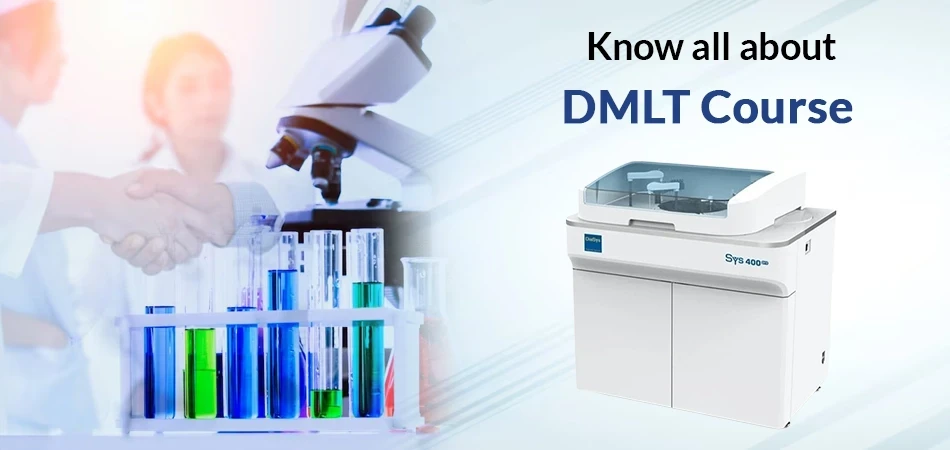Maximising Your Learning Potential with a DMLT(NIOS) Course

Medical Laboratory Technology is one of the most extensive fields in healthcare. MLT is an area of medical specialisation that educates students on conducting laboratory tests for diagnosing, treating, and preventing patients' illnesses. The National Institute of Open School has launched a special program for working students who are unable to attend a paramedical college or university.
If you’re considering a Diploma in Medical Laboratory Technology (DMLT) NIOS course, you're likely aiming to maximize your learning potential and make the most of the program. Here’s a comprehensive guide to help you achieve that:
How can you maximise your learning potential with the DMLT course
1. Understand the Course Structure
Curriculum Overview: Familiarize yourself with the subjects, such as clinical biochemistry, microbiology, haematology, and pathology. Understanding the syllabus will help you focus your efforts.
Practical vs. Theoretical Learning: Balance your time between classroom learning and hands-on laboratory work. Both are crucial for mastering the material.
2. Develop Effective Study Habits
- Create a Study Schedule: Break down your syllabus into manageable chunks and allocate specific times for each subject.
- Active Learning: Engage with the material actively through methods like summarizing information, teaching others, or applying concepts to real-life scenarios.
3. Leverage Resources
- Textbooks and Reference Books: Use recommended textbooks and additional references to deepen your understanding.
- Online Resources: Utilize online platforms, videos, and forums related to medical laboratory technology for supplementary learning.
4. Engage in Practical Experience
- Lab Work: Make the most of your laboratory sessions. Hands-on experience is crucial for understanding theoretical concepts and developing technical skills.
- Internships and Placements: Seek out internships or part-time positions in medical labs to gain real-world experience.
5. Seek Guidance and Feedback
- Instructors: Don’t hesitate to ask your instructors for clarification or additional resources. They can provide valuable insights and guidance.
- Peer Study Groups: Collaborate with classmates to discuss complex topics and solve problems together. Teaching each other can enhance understanding.
6. Stay Organized
- Notes and RecordKeeping: Keep detailed notes and organize them for easy review. Well-organised notes can be a lifesaver during exams and practical assessments.
- Track Progress: Regularly assess your understanding of the material and adjust your study strategies accordingly.
7. Prioritize Health and WellBeing
- Balanced Lifestyle: Maintain a healthy balance between study, rest, and recreation. Adequate sleep, proper nutrition, and regular exercise are important for optimal cognitive function.
- Stress Management: Develop techniques to manage stress, such as mindfulness, meditation, or talking to a counsellor if needed.
8. Stay Current with Advances
Industry Trends: Stay updated on the latest developments in medical laboratory technology. This can provide context for what you’re learning and keep you informed about new techniques and tools.
9. Prepare for Exams and Assessments
- Practice Tests: Take practice exams to familiarize yourself with the format and identify areas where you need more review.
- Review Sessions: Participate in review sessions and study groups to consolidate your knowledge before exams.
10. Network and Build Professional Relationships
- Professional Associations: Join relevant associations or groups related to medical laboratory technology to connect with professionals in the field.
- Mentorship: Seek out mentors who can offer advice, career guidance, and support throughout your studies and beyond.
By adopting these strategies, you can enhance your learning experience in a DMLT course and position yourself for success in the field of medical laboratory technology.
What is the benefit of doing DMLT from NIOS?
- Learn while working
- Lower cost of study materials
- Get a diploma at home
- NIOS is government-approved
- Numerous options for colleges
Course Overview
| Program Full Name | DIPLOMA IN MEDICAL LAB TECHNOLOGY |
| Program Level | Diploma |
| Duration of the Program | 2 Years |
| Examination Type | Year |
| Eligibility | 10+2 |
| Admission Process | Entrance Exam and Merit Based |
| Average Program Fee | Upto Rs. 45000 |
Conclusion
The NIOS in Delhi offers a great chance for employed individuals to impact their future positively by enrolling in the DMLT diploma course. Candidates can greatly benefit from the lack of need to personally go to a school for their education. Select the best Paramedical College that provides these programs to help students prepare for their future endeavours.
People may ask
Q1. Do paramedical courses require NEET?
Ans. No, NEET is not required for paramedical courses. However, a few colleges might have university entrance exams for students.
Q2. Is there any entrance exam for paramedical courses?
Ans. Admission to some of the paramedical courses is based on entrance exams. This includes JIPMER, NEETUG, MHT CET, etc.
Q4. How many years is a Paramedical course?
Ans. Certificate courses go on for 12 years while degree courses are for 14 years.
Q5. Is paramedical a good career?
Ans. There are ample job opportunities for paramedical graduates and an increasing demand for trained people in these fields.

